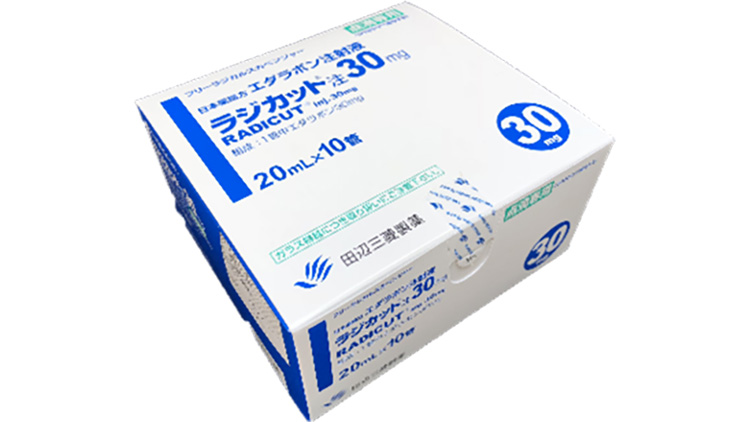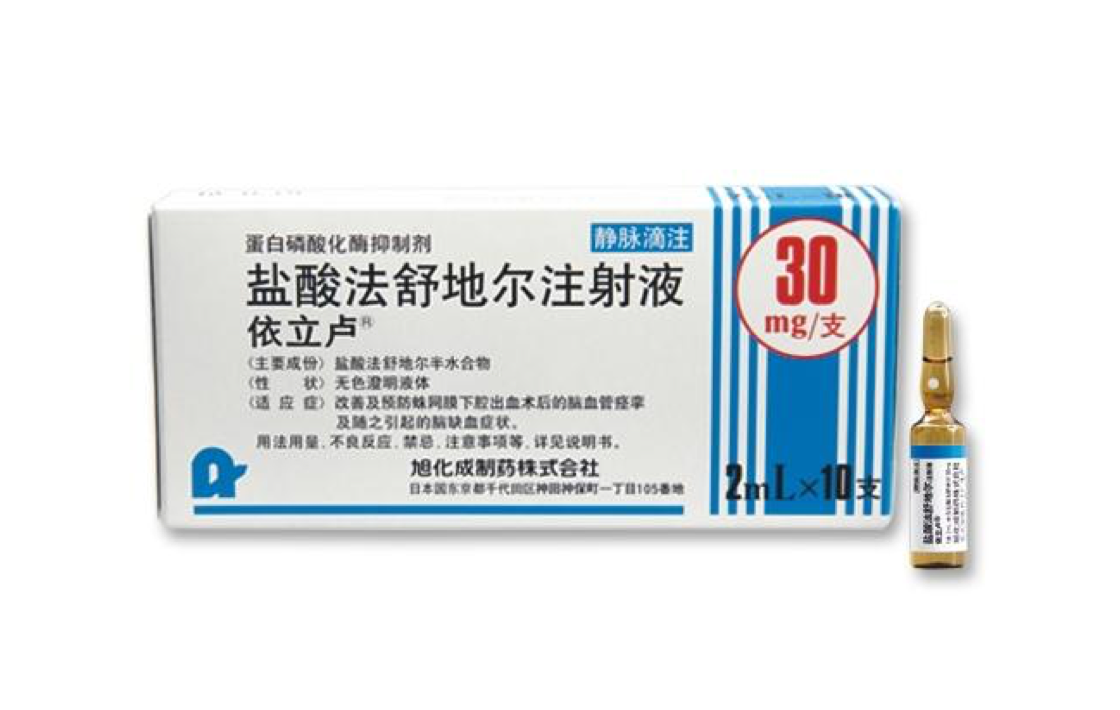Radicut (edaravone) vs Eril (fasudil hydrochloride)
Radicut (edaravone) vs Eril (fasudil hydrochloride)
Radicut (edaravone) is an antioxidant agent primarily used for the treatment of amyotrophic lateral sclerosis (ALS), and it works by relieving oxidative stress, potentially slowing the progression of the disease. Eril (fasudil hydrochloride), on the other hand, is a vasodilator that is mainly used to prevent cerebral vasospasm in patients who have had a subarachnoid hemorrhage; it works by relaxing blood vessels to improve blood flow. When deciding between the two medications, it is crucial to consider the specific condition being treated, as their uses and mechanisms of action are distinct and tailored to different medical indications.
Difference between Radicut and Eril
| Metric | Radicut (edaravone) | Eril (fasudil hydrochloride) |
|---|---|---|
| Generic name | Edaravone | Fasudil hydrochloride |
| Indications | Amyotrophic lateral sclerosis (ALS) | Cerebral vasospasm following subarachnoid hemorrhage, chronic arterial occlusion |
| Mechanism of action | Free radical scavenger | Rho kinase inhibitor |
| Brand names | Radicut, Radicava | Eril |
| Administrative route | Intravenous | Intravenous, oral (not available in all markets) |
| Side effects | Headache, gait disturbance, bruising | Headache, dizziness, hypotension, gastrointestinal disturbances |
| Contraindications | Hypersensitivity to edaravone or excipients | Hypersensitivity to fasudil or excipients, severe hepatic impairment |
| Drug class | Neuroprotective agent | Vasodilator |
| Manufacturer | Mitsubishi Tanabe Pharma | Asahi Kasei Pharma |
Efficacy
Efficacy of Radicut (Edaravone) in ALS
Radicut, also known as edaravone, is a medication that has been studied and approved for use in the treatment of Amyotrophic Lateral Sclerosis (ALS), a progressive neurodegenerative disease. The efficacy of Radicut in slowing the decline of physical function in ALS patients has been evaluated in clinical trials. In a pivotal phase 3 trial, edaravone demonstrated a reduced rate of decline in the ALS Functional Rating Scale-Revised (ALSFRS-R) score compared to placebo over a six-month period. This scale measures the physical function in areas such as speech, swallowing, and limb strength. The results indicated that Radicut could provide a modest benefit in preserving motor function in patients with ALS.
The specific mechanism by which Radicut exerts its effects in ALS is not fully understood. However, it is believed to act as a free radical scavenger, potentially reducing oxidative stress which is thought to play a role in the pathogenesis of ALS. The use of Radicut is generally recommended for patients with sporadic ALS who are within two years of symptom onset and still retain most of their physical function. It is important to note that while Radicut may slow the progression of ALS, it is not a cure for the disease and does not reverse damage already done to motor neurons.
Efficacy of Eril (Fasudil Hydrochloride) in ALS
Eril, known generically as fasudil hydrochloride, is a rho-kinase inhibitor that has been explored for its potential use in ALS, although it is not approved for this indication. The research on Eril's efficacy in ALS is less extensive than that of Radicut. Fasudil has been shown to have neuroprotective effects in various models of neurological diseases, and its potential benefits in ALS are thought to be related to its anti-inflammatory and vasodilatory properties. It may also have a role in modulating the cellular pathways that contribute to the death of motor neurons.
Clinical studies evaluating the efficacy of Eril in ALS patients are limited, and more research is needed to establish its role in the management of this condition. To date, there has not been a large-scale, pivotal clinical trial that demonstrates Eril's efficacy in ALS similar to those conducted for Radicut. Therefore, while Eril may have theoretical benefits for ALS patients based on its pharmacological action, its use remains investigational, and its efficacy in ALS has yet to be proven in large, randomized controlled trials.
Regulatory Agency Approvals
Radicut
-
Food and Drug Administration (FDA), USA

-
Health Canada

-
Pharmaceuticals and Medical Devices Agency (PMDA), Japan

Eril
-
Pharmaceuticals and Medical Devices Agency (PMDA), Japan

Access Radicut or Eril today
If Radicut or Eril are not approved or available in your country (e.g. due to supply issues), you can access them via Everyone.org.
How it works

Make an enquiry
Choose the medicine you want to buy, answer a couple of questions, and upload your prescription to speed things up. We’ll get back to you within 24 hours.


Make an enquiry
Choose the medicine you want to buy, answer a couple of questions, and upload your prescription to speed things up. We’ll get back to you within 24 hours.


Breeze through the paperwork
We'll guide you through the required documents for importing unapproved medicine, ensuring you have all the necessary information.


Get a personalized quote
We’ll prepare a quote for you, including medicine costs and any shipping, administrative, or import fees that may apply.


Receive your medicine
Accept the quote and we’ll handle the rest - sourcing and safely delivering your medicine.

Some text on this page has been automatically generated. Speak to your physician before you start a new treatment or medication.
Let's talk
If you have any questions, call us or send us a message through WhatsApp or email:
Contact us




